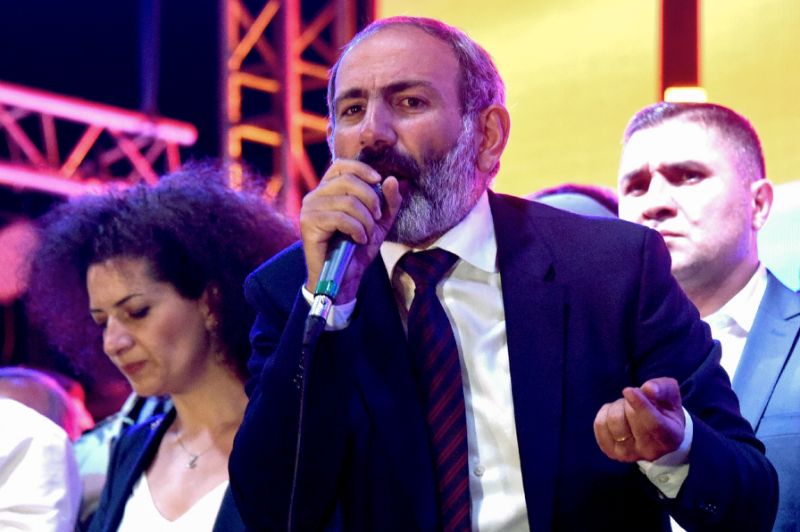For two countries, Russia and Iran, April 30 became the day of rallies. In Moscow, thousands of people took to the streets chanting against attempts of Vladimir Putin‘s government to block the Telegram messaging app. Meanwhile in Iran, millions of citizens shared posts on their social media accounts expressing a high level of concern and anger against the Islamic judiciary which ordered service providers to shut down the platform.
We, the undersigned 26 international human rights, media and Internet freedom organisations call on #Russia to stop blocking @Telegram and cease its relentless attacks on Internet freedom more broadly. https://t.co/oi7tcu91RC pic.twitter.com/bVvopZnPjy
— Amnesty Eastern Europe & Central Asia (@AmnestyEECA) May 1, 2018
Telegram: An Unusual Case
While people all over the world use apps for their simple day-to-day affairs, in Iran and Russia the Telegram messenger has become particularly popular for its phenomenal feature – public channels, which have become influential media sources capable of causing a political crisis. At the moment, both the Iranian and Russian government are utilizing security means to keep the pressure in an attempt to push back against their opponents on this messenger.
The website of Telegram says the app ensures a “new era of messaging.” It seems that in the heart of the former Eastern Bloc and the Middle East (in more corrupt countries in particular), the growth in the Telegram users’ number has brought this new era to reality with earth-shaking shifts in the political arena, which have affected the power struggle between governments and society.
The Capital of the Disputes
In Iran, Telegram has caused a lot of interest, with more than 40 million people using the app, which equals to one in every two members of the population. During the past half-decade, this made Telegram a key media-messenger able to influence political contestations.
In contrast to countries where the use of social media led to uprisings and regime change, like Egypt, in Iran, more gradual steps towards change have been seen. Nonetheless, even such changes have not been tolerated by conservative Islamists and authoritarian institutions. A short review of Telegram’s impact on Iran’s politics explains the intolerance against Telegram in this country, and Russia too.
Electoral Contestation
Since 2013, during a period that included three important elections, such as presidential and parliamentary, Telegram was the key platform that facilitated the revival of the opposition forces, even though this camp was censored by the national radio and TV. In addition to the election success of the current President Hassan Rouhani, the reformist camp consecutively defeated conservatives and fundamentalists in parliamentary and city council elections.
The publication of a short video message by the reformists’ leader Mohammad Khatami strengthened the camp’s positions and brought them victory in various elections. Nonetheless, this meant that the anger among conservative figures and fundamentalist clerics directed toward Telegram has become stronger.
On the opposite, Rouhani, the reformists’ ally in the government, has been defending Telegram by utilizing the limited elected government’s influence. At the same time, the reformist members of the civil society have resorted to the “freedoms” and “human rights” calls to support it.
Non-Electoral Contestation
Until very recently, it was not a common practice for military forces and police to make public apologies for errors. Nonetheless, the dissemination of various citizen-recorded videos on Telegram channels, as it was seen in the case of Moral Police’s violent behavior towards young women, had a profound effect on people. It has caused controversy and challenge, inducing a lot of pressure on the police, while commanders attempted to justify their actions.
In some other cases, Telegram-induced pressure resulted in shame and scandal for the Islamic institutions and conservative clerics. For instance, once, in a judicial case, a Quran reciter with a strong affiliation with the establishment and the Supreme Leader’s office, was accused of child abuse. The allegations went viral on Telegram and other social media channels resulting in a “big shame” for the regime.
More recently, thanks to Telegram, people have found themselves in a better position to audit the financial behavior of Islamic institutions, which utilize significant budgets on an annual basis. Religious schools have become one of the examples. Last year, the Rouhani government released budgetary details pertaining to Islamic foundations and schools that came under the spotlight due to criticism people directed toward them on Telegram.
Resist Against Pressure
The conservative camp and fundamentalist clerics have been taking advantage of national security flags and “Islamic principle” excuses to explain their opposition to Telegram and seek the government’s approval to block the app.
Telegram opponents hold the view that their actions can be barely seen by the public. At the same time, various approaches to enhance control over Telegram’s content have been considered, including lobbying with Pavel Durov, the CEO and Founder, to bring servers to Iran, and designing and launching Iranian messenger Soroush.
Nonetheless, users continue to resist the pressure against Telegram and other social media platforms, including Twitter, with many people writing that they will not abandon Telegram. A journalist tweeted that Telegram is the “last fortress” for reformists and Rouhani against the authoritarian front.
A Failed Action by Russia
Regardless of whether it was a coincidence or a planned joint action, Iran and Russia increased their pressure on Telegram at the same time. Moscow has been trying to make Telegram’s founder Durov cooperate with authorities and share encryption keys with the Federal Security Service (FSB). The step has been rejected by Durov, who has continuously and consistently stated that the freedom and privacy of people were not for sale. In the aftermath, the Russian government moved to block Telegram, by attacking millions of different IPs. Their efforts failed, however.
Telegram vs. Authoritarian Regimes
It seems that authoritarian regimes are under heavy pressure from Telegram that manifests in the form of significant political expenses. Although in the hostile environment of Iran and Russia, opposition remains well-managed by authoritarian leaders, Telegram provides an effective platform for generating public action. In both countries, authorities cannot accept the wide use of Telegram, but they cannot curb it either.
Disclaimer: The views and opinions expressed here are those of the author and do not necessarily reflect the editorial position of The Globe Post.






















